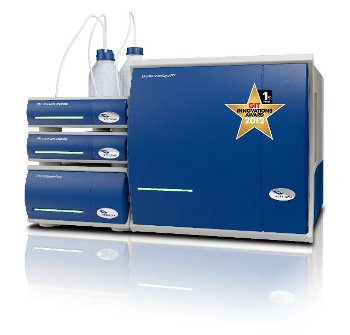Postnova Analytics will be exhibiting at Pittcon in Philadelphia, March 17-21, 2013 with their newest award-winning instrument, the CF2000 - the first commercial Centrifugal Field-Flow Fractionation (FFF) system designed for routine use.
 The CF2000 Centrifugal FFF instrument
The CF2000 Centrifugal FFF instrument
The CF2000 Centrifugal FFF instrument will be seen at Pittcon for the first time and experts from Postnova Analytics will be on hand at booth #1129 to discuss the benefits of analysis by centrifugal FFF and its applications within environmental, food, cosmetics, and nanoparticle research.
The CF2000 offers greater flexibility, increased robustness and excellent performance, allowing high-resolution particle separation and sizing simultaneously, setting a new standard and supplying a real alternative to traditional particle characterization techniques. It has a broad separation range, from samples of 8 nm up to several microns, making it ideal for nanoparticles but also working up into the microparticle size category too. With this wide sample range, typical samples vary in size from Ag and Au particles, to sediment and various organic and inorganic particles from surface, ground and waste waters. Samples are injected directly without preparation, no special sample treatment is necessary, allowing the fractionation of complex particulate.
What makes FFF such an appealing technique is not only its breadth of analysis but its operational simplicity. There are two physical forces that make up the FFF system. Firstly, the laminar flow that carries the sample through the separation chamber and secondly, the separation field applied perpendicular to the channel, against the sample flow controlling the diffusion of the particles or molecules. Driven by a centrifugal field, the CF2000 separates particles by Dynamic Diffusion on the basis of particle size and density. The CF2000 is controlled by the flexible NovaFFF software, which can drive many devices, and incorporates system control, data collection, data evaluation and reporting in the one package.
Coupled to detection systems such as Multi-Angle Light Scattering (MALS), Dynamic Light Scattering (DLS), different forms of UV detectors, Small Angle X-Ray Scattering (SAXS) or Inductively Coupled Plasma Mass Spectrometry (ICP-MS) or other detectors, FFF separation technologies enable the fractionation, characterization and speciation of large complex polymers, biomacromolecules, and nanoparticle species. Such separations often cannot be performed using traditional chromatographic methods, predominantly because of the stationary phase in traditional chromatographic separations. The CF2000 instrument can be easily coupled with existing high-end detection technologies as those mentioned above or the optimized FFF detectors available from Postnova Analytics.